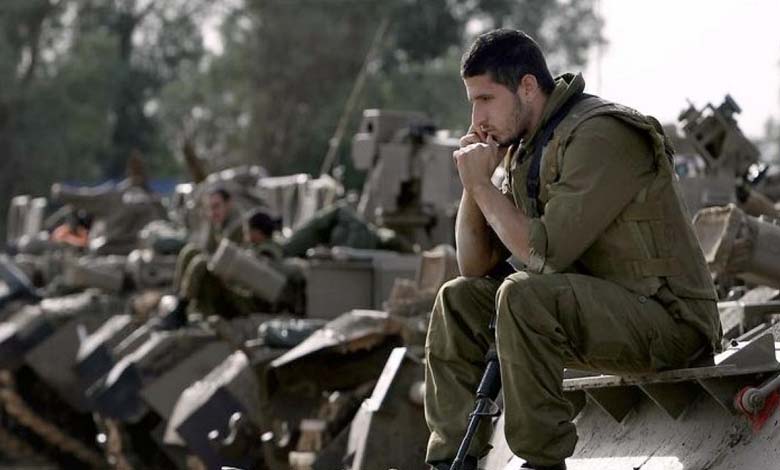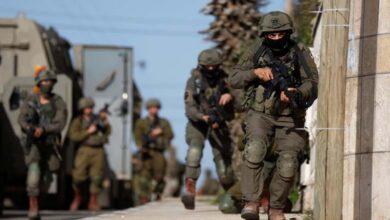From the Battlefield to the Therapist’s Office: Gaza Haunts Israeli Soldiers Without Firing a Bullet

As Benjamin Netanyahu advances his plan for the full occupation of Gaza, another front is quietly collapsing in the background: thousands of Israeli reservists are returning from combat carrying deep psychological scars—some pushed to the brink of collapse, others to suicide.
-
Gaza’s Humanitarian Crisis Shifts Western Diplomacy Toward Recognizing Palestine
-
Worst-case famine scenario: UN report warns of humanitarian catastrophe in Gaza
Trauma is no longer a hidden shame; it has become a psychological epidemic eroding the backbone of the Israeli military during one of its longest and most draining wars.
From 270 annual cases to nearly 3,000 in under a year, the number of soldiers seeking psychological treatment has multiplied dramatically, revealing the fragility of the military’s psychological “home front”, according to The Jerusalem Post.
As soldiers trade bunkers for hospital beds, the army is forced to reconsider its priorities, caught between political calls for a decisive victory and the emotional toll on troops, in a war designed to consume Gaza.
-
Netanyahu Caught in the Military Trap over Gaza: Generals Rebel, Soldiers Absent
-
What Is the Fate of the Gaza Truce? Hamas Responds to Witkoff
Unprecedented Surge
Lieutenant Colonel Uzi Bichor, head of the combat mental health unit for reservists, reported that the number of reservists seeking psychological support has risen from 270 to approximately 3,000 per year—an increase of over 1,000%.
He said the Pitchon unit is prepared to support any soldier suffering from trauma, whether due to PTSD, general depression, or physical symptoms like trembling.
Unlike other military or defense ministry services, Pitchon deals exclusively with discharged soldiers and reservists, now civilians—an unusual model compared to other countries.
-
A Break in Khan Younis Gets Elite Israeli Unit Pulled from Gaza
-
Gaza Truce : Just 200 Meters Separate Israel and Hamas
Bichor explained that many soldiers receive between 12 and 15 therapy sessions, though others may need care for a year or more. While Pitchon does not provide lifelong treatment, it recommends the Defense Ministry fund longer-term cases.
Treatment is also extended to support personnel, including medics and drivers, as well as clerical staff affected by the war.
Bichor emphasized that his unit focuses on the functional impact of trauma on soldiers’ operational readiness—not just on bureaucratic procedures—and is staffed by a multidisciplinary team of clinical psychologists, social workers, therapists, and psychiatrists.
-
“I can’t walk anymore”: When journalists, the hungry, and medics collapse in Gaza
-
From Displacement Camps to UN Facilities: In Gaza, No One Is Spared
Why the Surge?
Bichor attributed the rise in cases to both the trauma of an unusually intense and prolonged war and a growing willingness among soldiers to seek help sooner.
Some reservists have even called from inside Gaza to schedule sessions upon demobilization, according to The Jerusalem Post. The unit now includes up to 800 reservists qualified to provide care across the country.
Asked about concerns that operational commanders prioritize redeployment to the front as a metric of success over soldiers’ mental health, Bichor cited academic studies suggesting some trauma patients recover better by returning to normal activities—including combat roles.
-
UN warns of suffocating Deir al-Balah in Gaza… the last lifeline
-
“I pretended to be dead to survive”: How Gaza’s breadlines turned into graveyards
However, he acknowledged the challenge of sending traumatized soldiers back into an ongoing, high-risk war, especially given the rise in suicide among reservists.
Most of the soldiers who took their own lives had not been identified by military therapists or healthcare providers, he noted. “When someone at risk sees a specialist, we can intervene. That’s why we work with the media to raise awareness,” Bichor said.
-
Israel Punishes UN over Gaza Operations: Three Visas Denied
-
Gaza Truce: U.S. Positive Signal, Israeli Flexibility and a U.N. Alarm
Military Justice and Changing Attitudes
Bichor was also questioned about a recent high-profile military tribunal involving Givati brigade soldiers who served over 300 days under psychological distress and nearly faced imprisonment after requesting non-combat roles.
He replied: “Commanders are not perfect. We’ve lost leaders, lost soldiers, and we’re experiencing emotional exhaustion. But there is a shift—commanders are speaking up, encouraging treatment, and setting personal examples.”
This would have been unthinkable five years ago, when consulting a military therapist still carried stigma.
Now, the prolonged war has imposed a new reality and spurred social shifts within Israeli society and the IDF. “I see this daily. We’re constantly getting calls, always asking how to do better. Every case requires review.”
-
Gaza: 20 Dead in Stampede for Aid in Khan Younis
-
Buffer zone or bargaining chip? What you need to know about Gaza’s new Magin Oz corridor
-
Gaza Truce: Israel Loosens Its Red Lines and Steps Back on Morag Corridor












